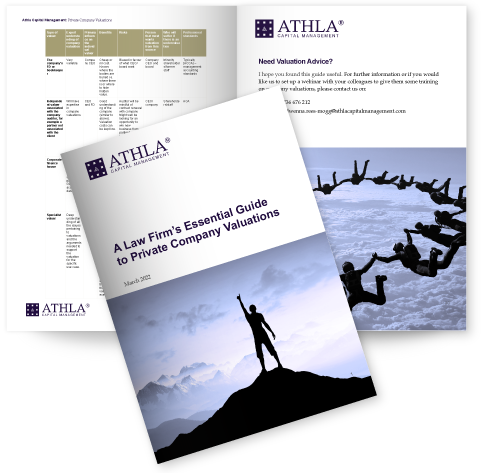How old is your favourite corporate client?
November 28, 2023

We’ve been analysing the age of UK companies and what it will mean for work pipelines for lawyers and valuers.
We’ve recently been doing some analysis of the different types of valuations we’ve worked on over the past couple of years and, in doing so, we spotted a few interesting trends. Recently, we’ve seen a significant uptick in the number of valuations that centred on family businesses.
Usually there is a tax implication, and it is very important that the valuation is correct. These situations are frequently very different from valuations in and around high growth/tech companies. We use HMRC’s framework for valuation which is set out in law.
Our reports have enabled our clients to structure their tax arrangements so that they pay what they owe, no more, no less.
It is crucial with these valuations that we are mindful of the additional layers of complexity that valuing a family business can entail, particularly as family relationships and emotions must be considered. We take this issue very seriously and always make sure the drafting in our reports is appropriate. We are particularly careful to set out how and why we have reached a certain valuation, rather than just providing a numerical value without the appropriate context.
This got us thinking; is this trend in an increased need for valuations by families simply a natural ebb and flow that will revert back to the way it was before? Or is it likely that these types of valuations will continue to comprise an increased proportion of the work we do? We decided to delve a little deeper and do a bit of research to understand where this increase might be coming from.
Did you know that if you go to Companies House beta, on the Advanced Search feature, you can look at how many companies are alive today based on the date they were founded? We had a quick look and found there are 163 companies that are still actively trading and were founded in 1900. Four in the list that stood out to us were GKN, Tarmac Cement, Dundee Football Club, and The Baltic Exchange.
We also had a look at company creations during the 1980s. Why? First, our analysis showed that it was in the 1980s that the volume of companies being incorporated really started to grow, which was probably due to the Thatcher Revolution.
Specifically the growth will have been driven by the Enterprise Allowance Scheme. Those who met the scheme’s criteria could apply to receive an allowance of up to £40 a week (about £130 in today’s money) to help them start their own business. At its peak, the scheme had more than 100,000 people signing up each year and is credited with helping 325,000 people become self-employed. You can read more about the scheme (and the curious impact it had on arts and culture) HERE.
Of the 187,886 companies that were incorporated during Mrs Thatcher’s time as Prime Minister (a nearly 300% increase on the 11 years prior), 101,599 are still actively trading businesses today.
This got us thinking. Someone who enrolled in the scheme in their twenties would now be anywhere from their late-60s to their mid-50s. Or in other words, starting to reach the age where they consider how to pass their business down through the family and enjoy retirement.
Transferring a family business down through the generations can raise a number of issues. The Times has been running a few articles recently with case studies of families who have been transferring business management and ownership down a generation. If you don’t subscribe to The Times, let me know and I will send you a gift article so that you can read them for yourself. Clearly there are tax implications when shares are transferred, but we also have a good understanding of how families use multiple share classes to ensure control of the business stays in the right hands for the right period!
Sadly, some shareholders in family businesses die. We are seeing a need for valuations in probate scenarios, and given the numbers, only expect this to grow over the next twenty years for this cohort. 190,467 and 639,087 still actively trading companies were founded between 1990-1999 and 2000-2009 respectively (I’m in this cohort as I incorporated my personal services company in 2003!).
Sadly too, we are also seeing requirements for share valuations in divorce scenarios.
So what does this mean for you and for us? There is no question that volumes of work are going to grow and grow over the next decades (I’m not sure Mrs Thatcher thought about this opportunity for us back in 1983).
Clearly high volumes of work beg the question of how on earth all the valuations will be done to a standard that is acceptable to HMRC and/or the Courts.
Like yourselves, we are paying very close attention to AI. Today our stance is that, was there to be an AI solution available, because the underlying datasets are not available, AI could not generate reports at the required standards, and it will be a while before it can. If you feel differently or know otherwise, we would really appreciate a chat, as we have a software development team who are just as curious as Athla’s management.
As you know, we work smart and fast. We can complete a typical valuation in about five days, because our team are specialists and 100% focused on valuing companies and shares, as well as other assets from time to time.
We know that, currently, AI cannot take work away from us. Each situation is unique and, as you know, a valuation purely based on financials probably does not incorporate the critical issue of intangible value, thereby possibly making the valuation obsolete.
Repeatedly, we win business precisely because the valuation is “tricky” in this way. We solve this problem for our clients.
We are running towards Christmas now, but our team is – and will be – available whenever you need us. If you know of a family business, regardless of situations, where a valuation will solve a problem or reduce conflict, do call us. We would love to help.


